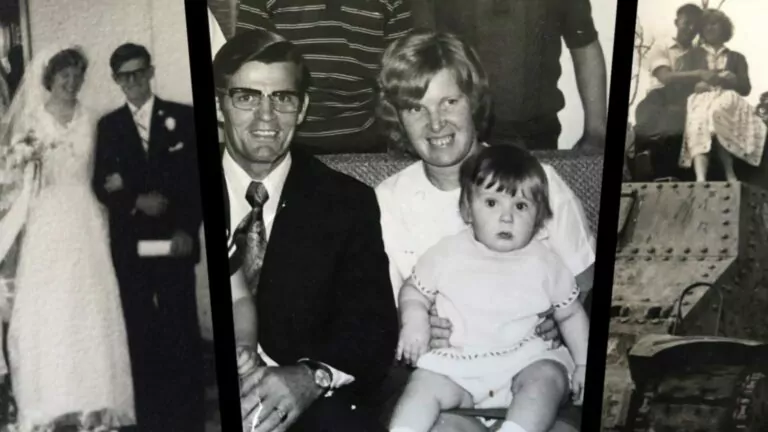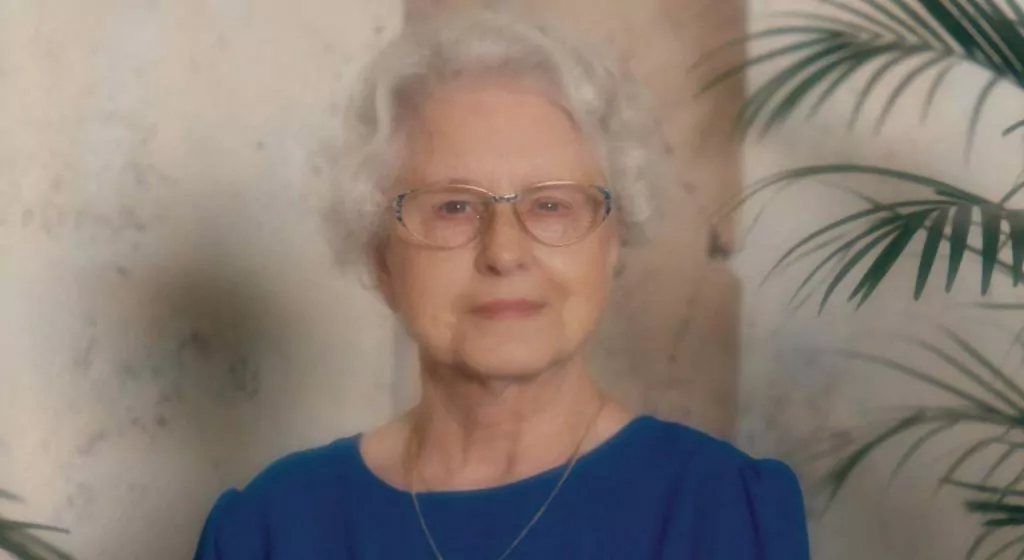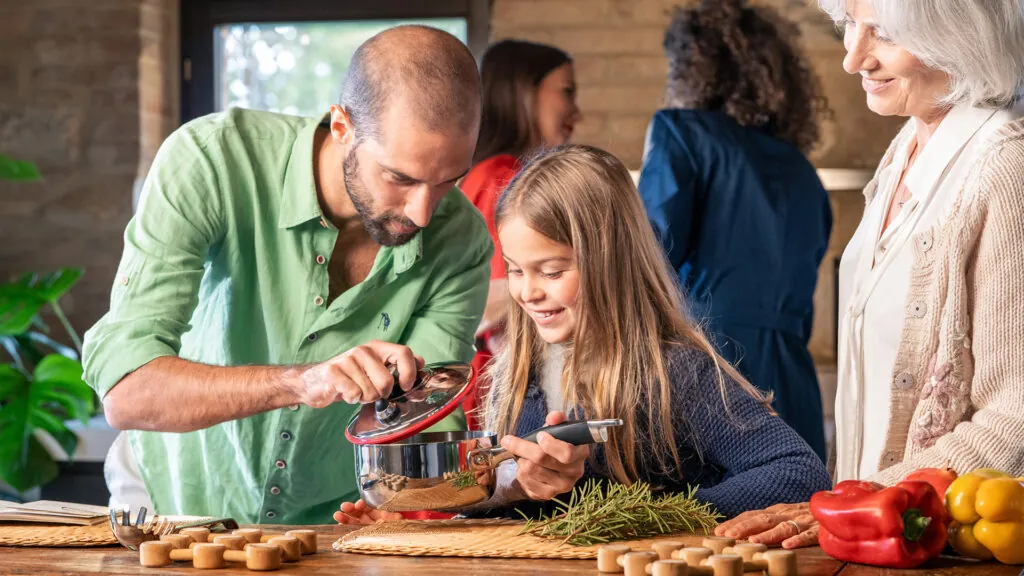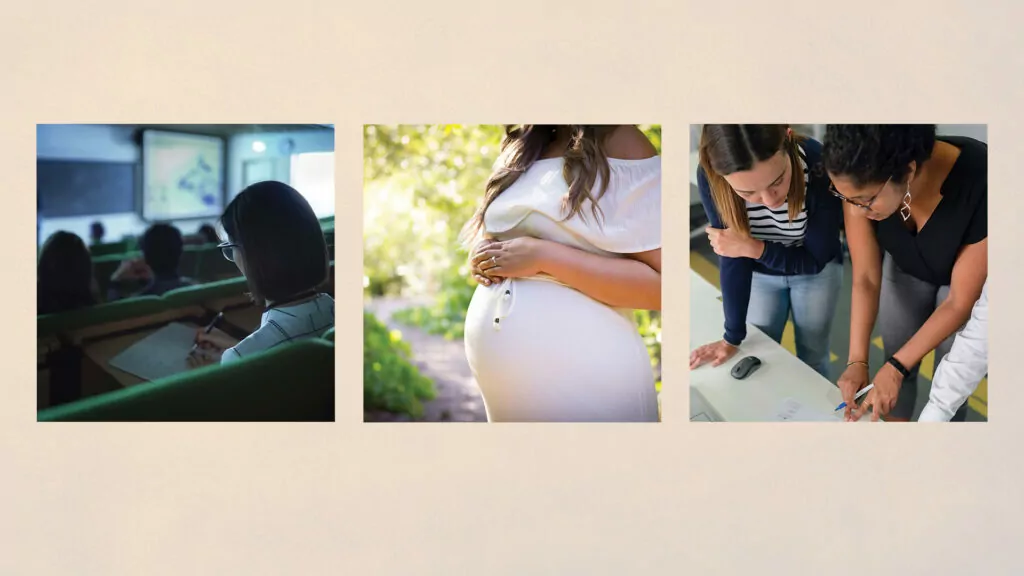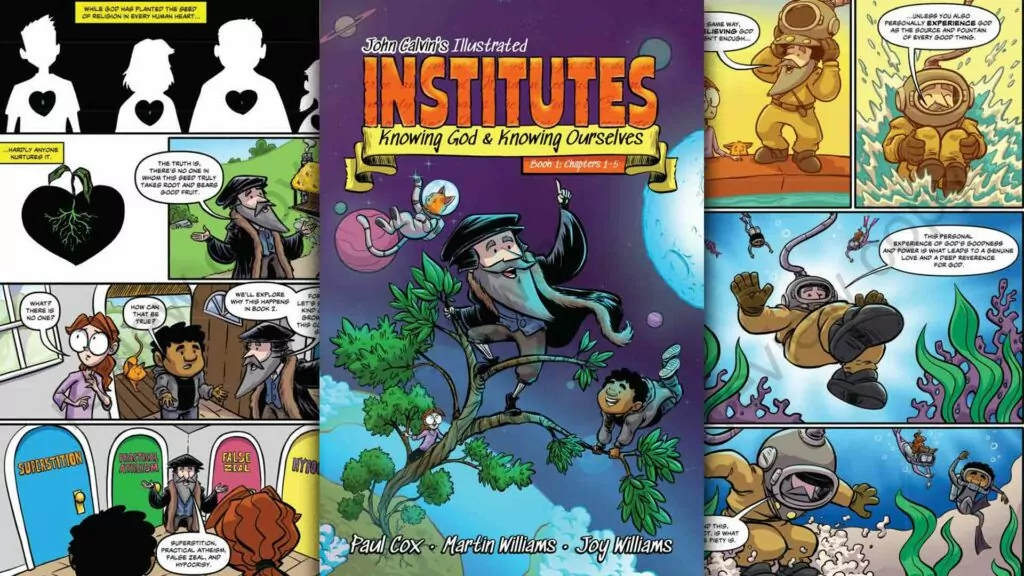Solomon tells us the first step to learning wisdom is to pursue it (Prov. 4:7), so I recently sat down with my Oma and listened to her share her immigration story.
Leny Bosveld (nee Plug) was born Dec. 18, 1937 on the coast of Holland, the 4th child out of 8. Her father originally was a fisherman, but gave up his trade to sell coal and oil. He prospered in his new role of businessman and owned a three-story house that included a shower and toilets, which was a luxury in those days and not common to most households. Though prospering himself, Leny’s father did not think there would be enough work in Holland for his sons, so in 1950 the family made plans to immigrate to Australia.
So it was, a mere 73 years ago, while Europe was still recovering from World War II, my Oma moved from a life of wealth to a life of poverty; her story is much like any pioneer or immigrant in history past.
Years in nothing but a tent
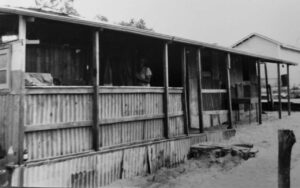
Oma’s temporary post-tent makeshift house
After a four-week boat ride, the family landed in Albany, Western Australia, and for the next three months lived in their moving container, and slept in a large army tent which was shared with their oma and two uncles. You were only allowed to bring a certain amount of money along when you immigrated, and even though Leny’s dad had his fishing boat, he did not know how to fish in Australia and was not able to make a steady income.
After 3 months, Leny’s family moved to Fremantle, and set up the tent in the bush. Living in the tent was a hard life for Leny’s mom, and at one time she said, “If the sea was not between Australia and Holland I would crawl back home.”
There was no water and no electricity. To get water the children had to walk far and carry buckets of water uphill, so that by the time it got to their living area much of it had splashed out. Cooking was done with a kerosene cooker, and later with a stove over an open fire outside. Their refrigerator was a small cupboard that held a block of ice, which was changed twice a week by an ice man. There was a big copper pot outside to boil the water in. There were containers and a board for washing laundry. The toilet was outside in a big bucket, and the boys had to dig a hole and bury everything every two days. Once a week the children took turns washing in a tub. This was normal life for the children and did not bother them, though my Oma does remember getting made fun of at school for their poor life.
After two years in Fremantle the tent seam broke, and a temporary house was made from timber and the remains of the tent. Eventually the family bought a house that included a proper outside toilet.
More families followed
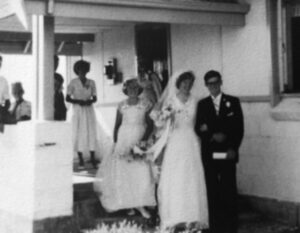
The wedding of Leny and Johan in Dec. 1957.
While Leny’s family were the first Dutch immigrants to the Albany area, eventually more families came and the immigrants could meet for church together.
Leny and Johan met at church, though Leny was shy and avoided contact with him after her mother told her not to chase boys. But Johan liked Leny and asked her father to be her boyfriend. The pair dated for 4 years, seeing one another just once a week. Johan asked to marry Leny when she was only 20 and was told to wait until she was 21, so they got married on her 21st birthday! They had a simple wedding in a courthouse, then went to church for a blessing. Johan worked hard and as their 10 children came along they moved into bigger houses together and were not in want of the necessities of life.
Contentment in wealth and poverty
My Oma mentioned how living with wealth, as we do today, can be harder than poverty. Having everything can be a curse when we buy and are not satisfied. She said they were satisfied when they got a handkerchief from a lady next door. Comfort became less important for her as it became less available, and trusting God to provide was taught to her at a young age.
Not only was my Oma poor, she was also a foreigner in a new land, learning English and navigating how to be in the world but not of it. As our world becomes more hostile to Christians, as inflation and housing prices shift the kind of wealth the next generation may have, I was reminded not to fear or despair. Oma’s life helped me reevaluate what is a need versus what is merely a want that I have elevated to a “need” status.
Oma also reminded me not to focus on what kind of life to have in comparison to others, or to worry over deciding what comforts to hold onto and how many children fit or do not fit into a certain plan. Children are a blessing, and I needed the reminder to self-examine what I am keeping “busy” with, and to instead be praying, “Your will be done.” Home life does not need to be fancy; living simply and faithfully for God are what I am called to.
Older saints help us reconsider what does and does not matter. My Oma helped me see that the plague of ideas and expectations sprouting from our phones cannot overtake the faithful day of small things (Zec. 4:9-10). It is a lesson that I know I will need to be reminded of over and over again, and spending time with elderly saints is one way God continues to challenge me in that.
Growing in sanctification
Even though this is a brief snapshot into my Oma’s story, it testifies to God’s covenant faithfulness being handed down from generation to generation. My Oma and Opa have 10 children, 50 grandchildren, and 57 and counting great-grandchildren.
Perhaps the greatest gift to learn from my Oma is her example of self-forgetfulness; she is not looking to be an Instagram image, but an Image Bearer who points away from herself to her God. The stories and examples of the elderly give us encouragement that we too are heading there in our sanctification, towards a deeper relationship with God where the need and drive for our own glory fades, as His glory more and more becomes the focal point of our thoughts and actions.







